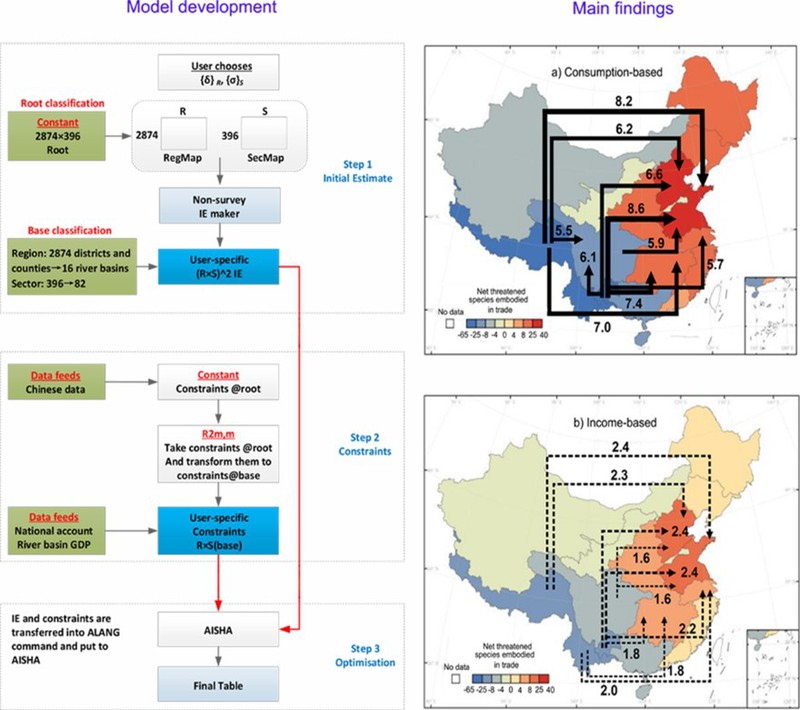Human economic activities severely threaten freshwater fish biodiversity in different river basins. Trade makes the impact more mysterious and complex and confounds local efforts to protect freshwater biodiversity. To investigate the relationship between trade and freshwater fishes, we developed a river-basin economic transaction model that is applied to mainland China, home to 9% of the world’s freshwater fish species. Here, we show that interbasin trade induced by final demand contributes 74% of the threats to China’s freshwater fish biodiversity. Economically developed river basins (e.g., the Huaihe River) are the main beneficiaries of interbasin trade at the cost of biodiversity deterioration in economically underdeveloped river basins (e.g., the upper Pearl River), especially when trade occurs between distant basins. Our findings highlight the significance of the shift in governance from administrative divisions to river basins and control measures in different stages of economic supply chains to mitigate freshwater fish biodiversity threats.

Figure The framework of multi-basin input-output (IO) model and findings
If you are interested in the research, please read the paper:
Changbo Wang, E. Zhang, Yafei Wang, Yuan Chang, Pengpeng Zhang, Xiao Chen, Mingyue Pang, Han Yu, Qunwei Wang, Lixiao Zhang, Dequn Zhou, Manfred Lenzen, Arunima Malik,
Donglan Zha, Xuejun Zhang, Meili Feng & Zhifu Mi (2024). Interbasin trade worsens the state of freshwater fish biodiversity in China. iScience, 27(11), 111121. Doi.org/10.1016/j.isci.2024.111121
A full version of this article could be viewed at:
https://www.sciencedirect.com/science/article/pii/S2589004224023460

Nanjing University of Aeronautics and Astronautics
Copyright 2017 | All Rights Reserved with NUAA
